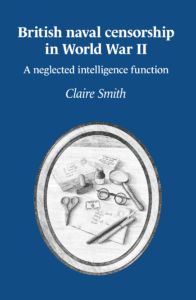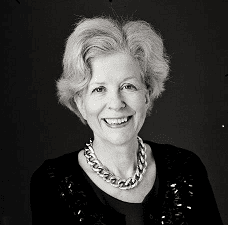Shedding light on the role of censorship in naval intelligence
Kellogg College is proud to celebrate the publication of a significant new work by alumna Claire Smith. Her academic research article, British Naval Censorship in World War II: A Neglected Intelligence Function, was published in hard copy on 12 May by The Holywell Press, Oxford.
 Smith’s concise yet insightful article sheds light on a little-explored aspect of wartime intelligence: the role of personal mail censorship by the Royal Navy. Smith argues that this vital intelligence function has been largely overshadowed by the focus on Bletchley Park and code-breaking efforts.
Smith’s concise yet insightful article sheds light on a little-explored aspect of wartime intelligence: the role of personal mail censorship by the Royal Navy. Smith argues that this vital intelligence function has been largely overshadowed by the focus on Bletchley Park and code-breaking efforts.
She gives examples of the importance of censorship and explains its role in countersubversion and the War Cabinet’s involvement. The research also highlights the pivotal role played by the Women’s Royal Naval Service (WRNS) in improving censorship processes. Smith contends that the historical neglect of censorship as an intelligence tool has contributed to the broader undervaluing of women’s contributions to the war effort, given that women comprised the majority of the censorship workforce. Her analysis situates these findings within the social attitudes of the time, particularly regarding the perceived disparity between men’s and women’s wartime labour.
Smith’s work has already drawn attention in the Guardian, which notes her argument that novelist Barbara Pym’s wartime role as an examiner should be viewed as more than just a quirky footnote in her biography, but as part of a broader, significant intelligence role.

Claire Smith
Claire undertook the MSc in Major Programme Management in 2016. Speaking of her experience at Oxford, she said, “The skills I learned on my MSc, especially in the Research Methods module, were invaluable. The support and advice from the librarians at Oxford, both during my MSc and more recently at the Weston Library for this research project, were outstanding. Finding my way through Barbara Pym’s personal papers was not always straightforward, and their professional expertise was crucial in helping me navigate these resources.”
A former senior diplomat, Smith served 27 years in the Foreign and Commonwealth Office. Her latest research brings both academic rigour and insider perspective to a long-overlooked element of intelligence history.